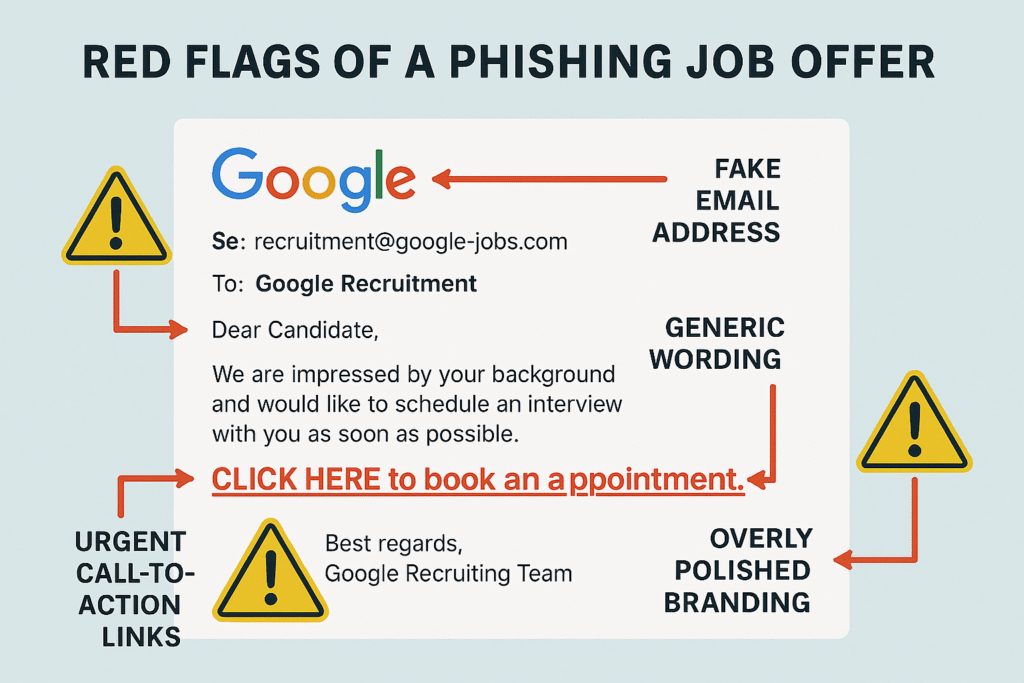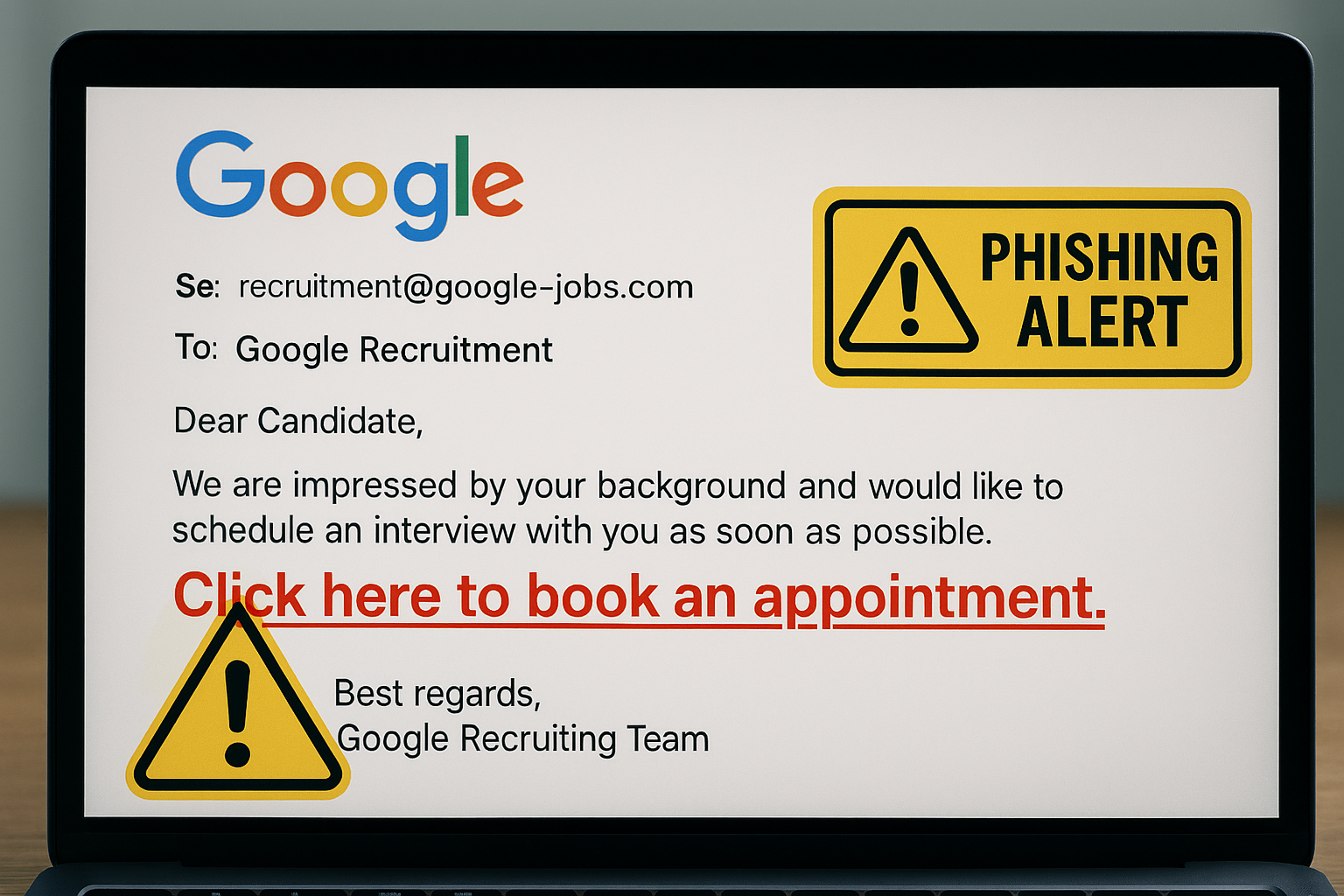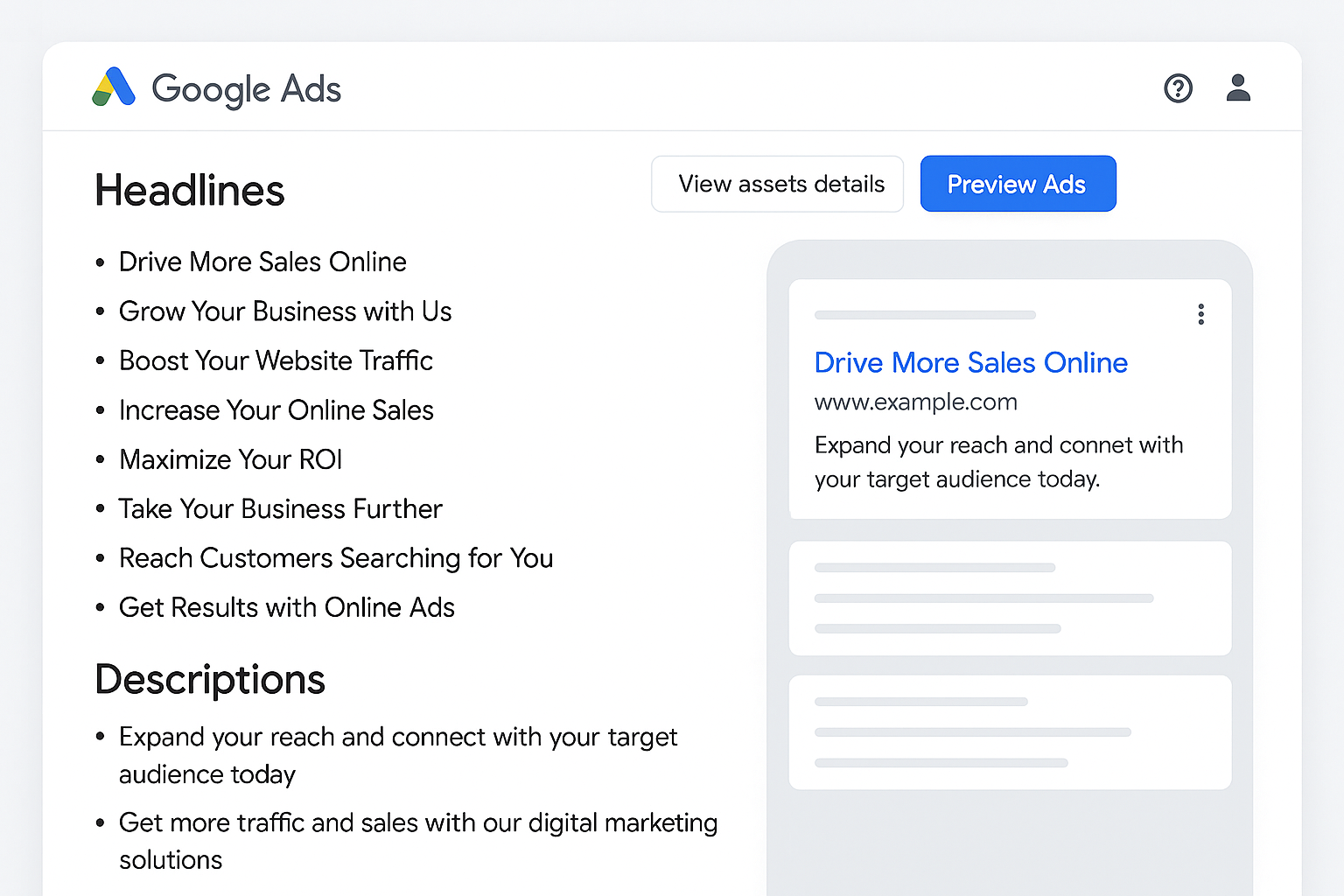When you are job hunting, an email from a big company like Google can feel like a dream come true. But as one man recently found out, not every job offer that lands in your inbox is what it seems. But Daniel quickly realized the offer was nothing more than an online recruitment Google Job Offer Scam.
A growing wave of phishing scams is using fake Google job offers to trick people into giving away personal information, money, or login details.
Daniel Fägersten, a job seeker, shared his experience after receiving a suspicious recruitment email. The email claimed he had been chosen for a role as a Digital Marketing Specialist at Google. On the surface, it looked polished and convincing.
The Google logo was displayed at the top, and the message was filled with flattering words about his supposed skills. For someone eager to land a job at a top tech company, this could easily have felt real. Want to maximize the reach of your old content? Try turning existing posts as ads and breathe new life into your campaigns.
Signs of the Fake Google Job Offer
Daniel noticed several red flags that exposed the scam. First, the sender’s email address was not linked to the official @google.com domain. Instead, it came from a strange address that looked professional at a glance but was clearly fake upon closer inspection.
The content of the email was another clue. It was very generic and vague. There was nothing specific about Daniel’s actual experience or skills. The message could have been sent to thousands of people word for word.

The so-called recruiter also included urgent links, pushing him to “Click here to book an appointment.” That kind of pressure is a common sign of phishing emails. Real companies like Google never rush candidates into clicking suspicious links.
Finally, the branding of the email seemed too perfect. It was almost like the scammers had gone out of their way to make it look overly polished. While at first this might trick someone, Daniel saw that the email was trying too hard to feel official. Developers can streamline integrations with the updated Google Ads API v21, making campaign management more efficient.
Why Job Seekers Are Easy Targets
The rise of fake job offers is no surprise in today’s online job market. More people are applying for positions remotely than ever before. Scammers know this, and they use the names of trusted companies like Google, Microsoft, or Amazon to trick job seekers.
When you are stressed about finding work, it is natural to get excited about a great offer. That excitement makes people less careful. Scammers take advantage of this emotional response. By promising high salaries, flexible hours, and prestigious roles, they lure people into clicking unsafe links or sharing private details.
Victims of these scams sometimes lose money directly if they are tricked into paying for fake training, background checks, or onboarding fees. Others unknowingly give away personal data that scammers use for identity theft. In both cases, the damage can be long-lasting. Learn how Google Ads ends $0.01 conversion value and what this update means for your reporting.
How to Spot and Avoid Phishing Google Job Offer Scam
Experts say there are a few simple steps to protect yourself from phishing scams disguised as job offers.
- Check the email domain. If it does not come from @google.com or the official domain of the company, it is a red flag.
- Look for generic wording. Real recruiters mention your name, background, and details about the role. Fake ones keep it vague.
- Be wary of urgent links. A demand to “click here immediately” or “confirm within 24 hours” is usually a scam tactic.
- Watch out for upfront payments. No genuine employer will ask for money during the hiring process.
- Verify through official channels. If in doubt, visit the company’s official careers page instead of trusting an email.
These tips might sound basic, but in the rush of job hunting, it is easy to forget. Scammers rely on that moment of distraction.
Google’s Official Hiring Process
For those wondering, Google has a very clear and professional hiring system. The company posts jobs only through its official careers site and sometimes through well-known platforms like LinkedIn. Google recruiters will always use verified @google.com emails and will never ask for payment.
The tech giant has also issued warnings about fake Google job offers in the past. They encourage job seekers to report any suspicious messages directly through their security team. By doing so, victims can help Google track and shut down fraudulent networks.
What Job Seekers Can Do
If you ever receive an email claiming to be from Google or another big company, the best approach is to slow down. Read the message carefully, double-check the sender, and avoid clicking on any links until you are sure.
If you have already clicked, do not panic. Disconnect from the internet, run a security scan, and change any passwords you may have entered. If you shared financial information, contact your bank immediately to secure your accounts.
Daniel’s story is a reminder that even the most polished job offer can turn out to be a scam. “At first I thought it was real,” he admitted, “but something felt off. Once I checked the email address, I knew I had to be careful.”
A Final Word of Caution
In a world where more and more hiring happens online, it is important to stay alert. Fake Google job offers are just one version of many Google Job Offer Scam targeting people today. By being cautious, checking details, and trusting your instincts, you can protect yourself.
Remember this golden rule: If an opportunity sounds too good to be true and pushes you to click quickly, it probably is not safe. Take your time, do your research, and only trust job offers that come from official sources. Tap into new opportunities with vehicle ads now open to all advertisers and drive better results.





